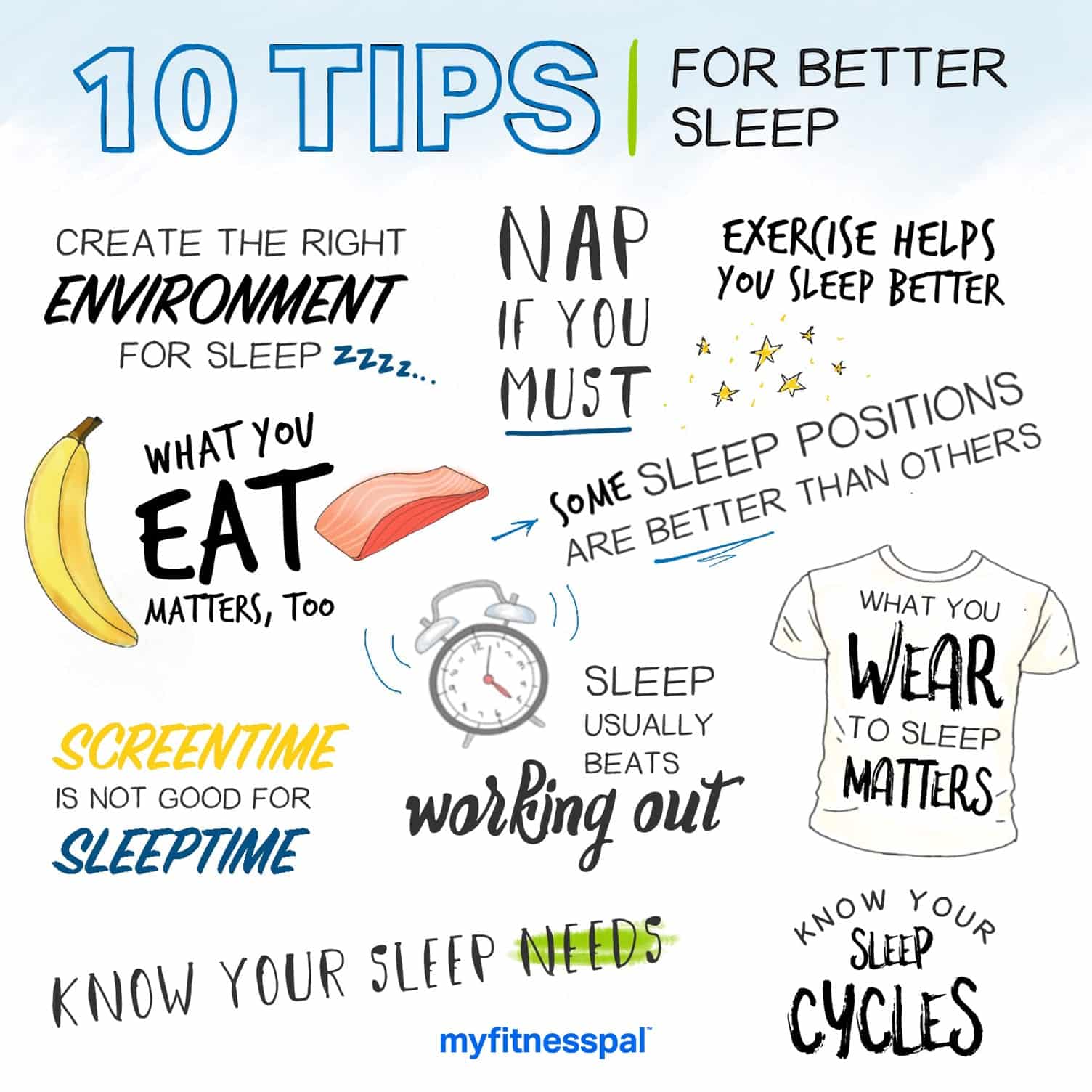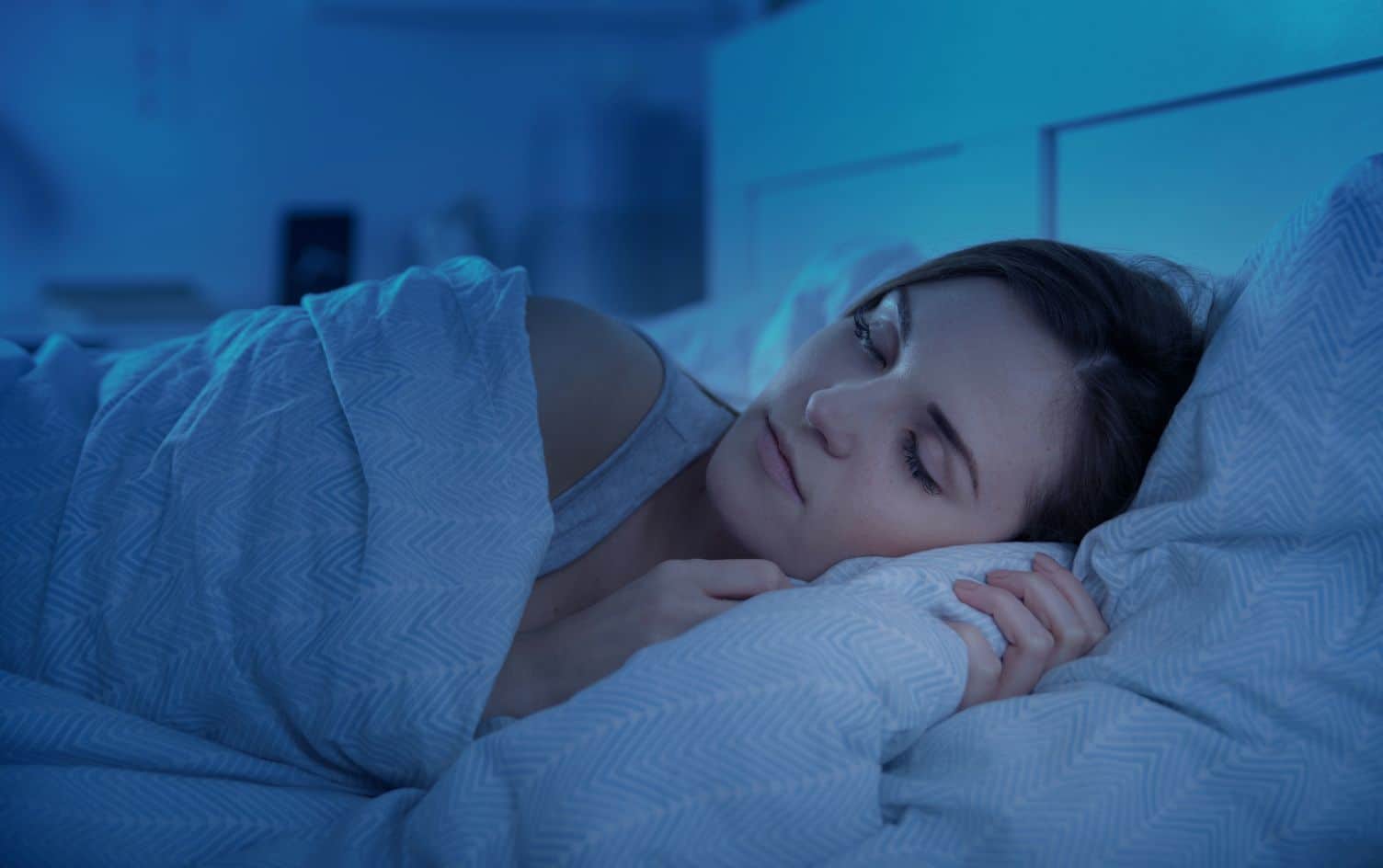
Sleep impacts us in more ways than we realize. The lack of it can be detrimental to weight-loss success as well as our overall well-being — it’s also been linked to dementia. We know the much-touted finding that humans need 7–9 hours of sleep to function optimally, but how we get the most out of those precious hours is another question. Part of adopting a healthy sleep habit into our life includes sleep tips like: prioritize the ritual of preparing for bed, practicing good sleep hygiene and setting aside the time to actually sleep.
Here, 10 tips to ensure solid shuteye becomes nothing short of a way of life:
CREATE THE RIGHT ENVIRONMENT FOR SLEEP
By now, we know to make our bed and bedroom a sleep sanctuary, complete with blackout curtains to promote darkness, temperatures between 65–68ºF and absolutely no technology. In fact, even the right pillow makes a difference in your sleep quality. It also might seem counterintuitive, but counting sheep just stresses you out more. Try using meditation or setting aside time to worry and keep stress to a minimum when your head hits the pillow.
WHAT YOU WEAR TO SLEEP MATTERS
Since we sleep better in chilly temperatures, some find sleeping naked to be pretty effective.
WHAT YOU EAT MATTERS, TOO
Culprits like heavy dinners, caffeine, alcohol and midnight snacks are pretty obvious. However, there are a number of foods to eat for a good night’s sleep — like bananas for their magnesium and carbs that help produce serotonin, salmon for B6 to help with hormone production and tart cherries for melatonin (to name a few). The good news is, the better you sleep, the better you are able to control cravings and sugar consumption.
SOME SLEEP POSITIONS ARE BETTER THAN OTHERS
Once you’ve created your sleep sanctuary, found the ideal sleepwear to regulate your body temperature, eaten the right foods for better sleep and avoided foods and drinks that hurt your sleep, you’re almost there. Next, consider how you sleep. If you sleep on your side or even your back, you’re in luck as these are better sleep positions for quality shuteye.
SLEEP USUALLY BEATS WORKING OUT
When the alarm clock goes off and it’s still dark outside, the natural question becomes: Is it better to sleep an extra hour or wrench myself out of bed to work out? Turns out there’s a study for that, and it suggests sleep edges out exercise. However, instead of making this an either/or proposition, plan to go to bed earlier so you can get in your morning workout, too.
SCREENTIME IS NOT GOOD FOR SLEEPTIME
One of the top culprits of poor sleep is spending too much time on our laptops, tablets and smartphones. The blue light emitted from these screens messes with our brain’s production of melatonin, which can reset your body clock and delay sleep. It’s best to set a time to shut off technology, and you definitely shouldn’t bring gadgets into the bedroom. Instead, consider reading a book.
EXERCISE HELPS YOU SLEEP BETTER
Sleep and recovery go hand in hand since sleep is when your muscles repair and recover. However, just like sleeping helps your athletic performance, exercising helps your sleep performance by increasing the amount of time you’re in deep sleep. Aim to get the recommended 150 minutes of exercise a week for better quality sleep.
NAP IF YOU MUST
If your productivity is slipping, you’re constantly hungry or you fall asleep immediately after your head hits the pillow, you’re likely sleep deprived. In these cases, or if you’ve had a particularly heavy training session, a good nap could be a godsend. After all, sleeping is the best way to make up for lack of sleep. If you can’t take a nap, a few ways to get through the day include getting outside and soaking up as much natural sunlight as you can and watching your cravings throughout the day.
KNOW YOUR SLEEP CYCLES
We’ve heard a lot about REM sleep, when we dream and how our brain processes emotions and memories, but so much more happens as we sleep. Each stage of our sleep cycle plays a role in our recovery, and non-REM sleep is linked to consolidating memories and clearing out detrimental compounds in our brains.
KNOW YOUR SLEEP NEEDS
Being able to hone in on how much sleep you need is perhaps the first step in optimizing sleep. Whether you operate fully at 7 hours of sleep or 9, knowing your sleep needs helps you plan your day to set yourself up for success. It’s rare to sleep too much, but if you need help winding down, spas are starting to offer treatments for sleep.

Determine your ideal sleep needs, then see how many days over the next 30-day period you can hit your target. Did you have fewer cravings? Were you more alert? Were your workouts better? Share your observations in the comments below. We want to hear from you!
Originally published November 2018, updated May 2023
Ready to take the next step? Unlock MyFitnessPal Premium to access custom goal settings, quick-log recipes, and guided plans from a registered dietitian. Premium users are 65% more likely to reach their weight loss goals!




